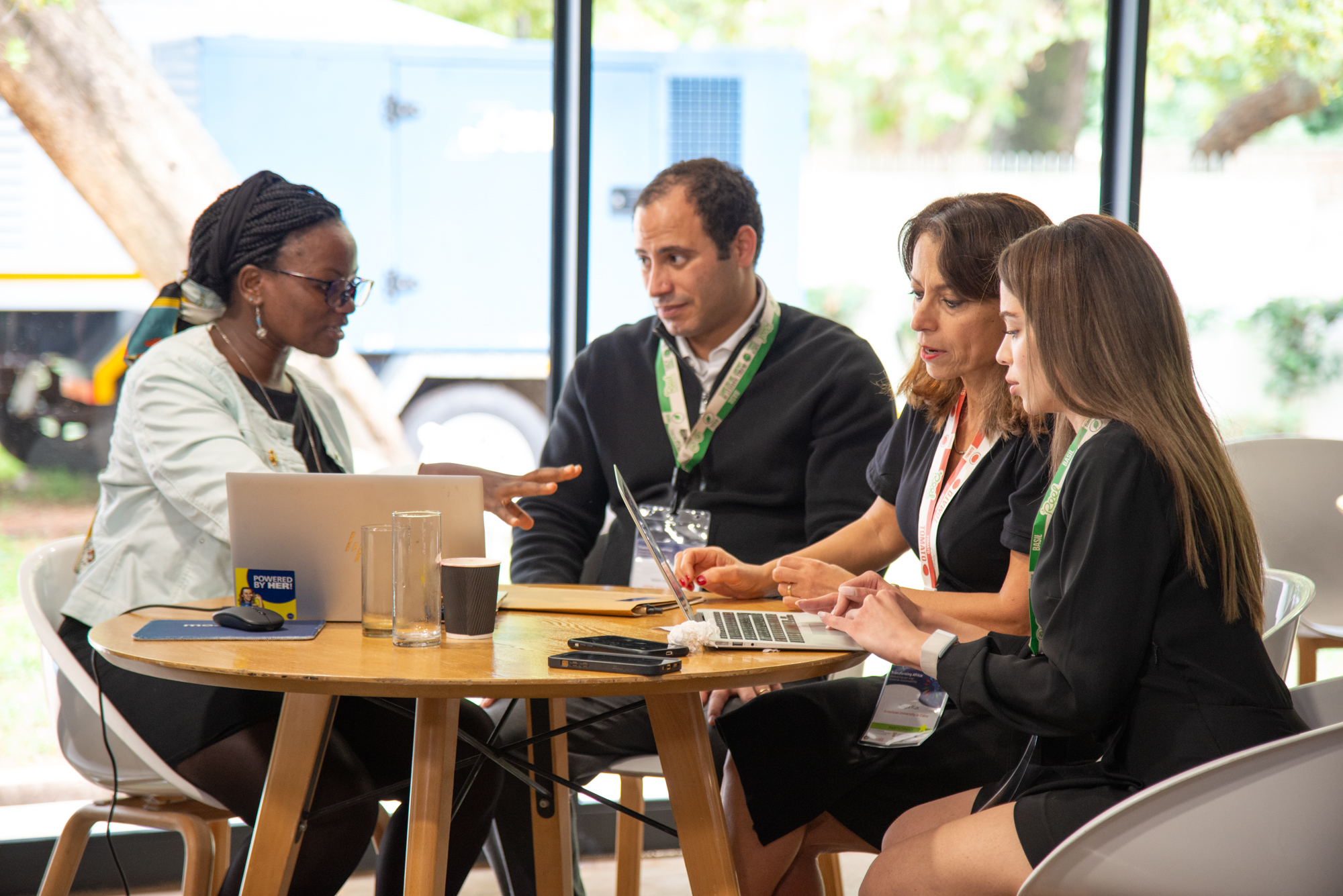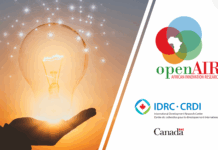Khadiga Hassan
The Department of Science and Innovation and the South African National Research Foundation (DSI/NRF) Trilateral Chair in Transformative Innovation, the 4IR and Sustainable Development marked its 5th anniversary by hosting an event at the University of Johannesburg (UJ) in South Africa. The Trilateral Chair organized the event with its core collaborating networks: Science Policy Research Unit (SPRU) at the University of Sussex, African Center for Technology Studies (ACTS), Open African Innovation Research (Open AIR), Transformative Innovation Policy – South Africa (TIP-SA), Transformative Innovation Policy Consortium (TIPC), The Department of Science and Innovation (DSI) and The South African Nation Research Foundation (NRF).
With its global significance, the conference “Transforming Africa: Innovating our way towards Sustainability” took place at the University of Johannesburg from February 26th to 29th, 2024. Each day of the event had a thematic focus: inclusive innovation, digital transformation, and green and just transitions. The organizers of the event succeeded in bringing together key stakeholders from across the globe and creating a multidisciplinary platform for a shared discourse on crucial issues affecting Africa’s sustainable and inclusive development.
At the conference, this author represented the Open AIR New and Emerging Researchers Group (NERG) and the Access to Knowledge for Development Center (A2K4D) at the American University in Cairo’s School of Business, the North African Hub of the Open AIR network. It was a great opportunity for her to participate in high-level moderated discussions, multistakeholder indabas, and research symposiums that brought diverse voices to a Pan-African dialogue covering topics related to transformative innovation and policy.
During the opening session, Professor Lethokwa Mpedi, UJ Vice Chancellor and Principal, emphasized that “a prosperous society is one that recognizes the importance of managing resources responsibly, protecting the environment, fostering social equity and planning for the future.” Suggesting that inclusion and sustainability are indeed prerequisites for prosperity. Speakers also alluded to the role of innovation in building a more prosperous and sustainable future in Africa with a focus on policy. In terms of the design and outcome of policy, the questions include how can we foster social equity? And why addressing the multiple divides is also essential for an inclusive digital future in Africa.
This author has been involved in the “Alternative Assessment of Innovation in Africa” research within the “Metrics, Laws and Policies” theme led by Professor Nagla Rizk, OpenAIR’s North African hub leader. The research was featured during the Research Symposium on Inclusive Innovation and Development parallel session titled “Measuring Informal Innovation Activity in Africa’s Formal SMEs – Examples from Egypt, Kenya & South Africa” on February 27th, 2024, at the conference. Speakers Professor Nagla Rizk, Caroline Wanjiru Muchiri, Islam Hassouna, and Professor Erika Kraemer Mbula presented results of the collaborative research efforts in Egypt, Kenya and South Africa capturing informal innovation activities in formal, small, and medium enterprises in the manufacturing sector.
During the session, Prof Rizk emphasized that the work has progressed over two tracks; “first constructing the “Innovation Activity Index (IAI)” which is based on revised definitions and scopes of the following three pillars: Collaboration, Human Capital, and Knowledge Governance. Second, fieldwork surveys to detect unmeasured innovation within these three pillars on the ground.” This linked to a common perspective that was shared by multiple speakers during the same day at the conference i.e., informal innovation is often overlooked by traditional economic indicators and indeed can be a significant contributor to the broader innovation and entrepreneurial ecosystem. As such, there is a need for a paradigm shift in assessing innovation activities, formal and informal, regardless of the sector in which they occur in Africa. This shift is essential to foster an enabling environment for an innovation ecosystem conducive to sustainable and inclusive development. This can instigate implementation plans and initiatives that support building the necessary capabilities to advance skill development, innovate, increase competitiveness, and accelerate job creation.
From the conference there was a general consensus that that there are intersections between informality, indigenous knowledge, culture, and digital transformation in Africa. Accordingly, within the broader approach to innovation in the space of policy, there is a critical need for frameworks that are tailored to Africa’s socio-economic, culture and political landscape. The final report from this conference are available here.










